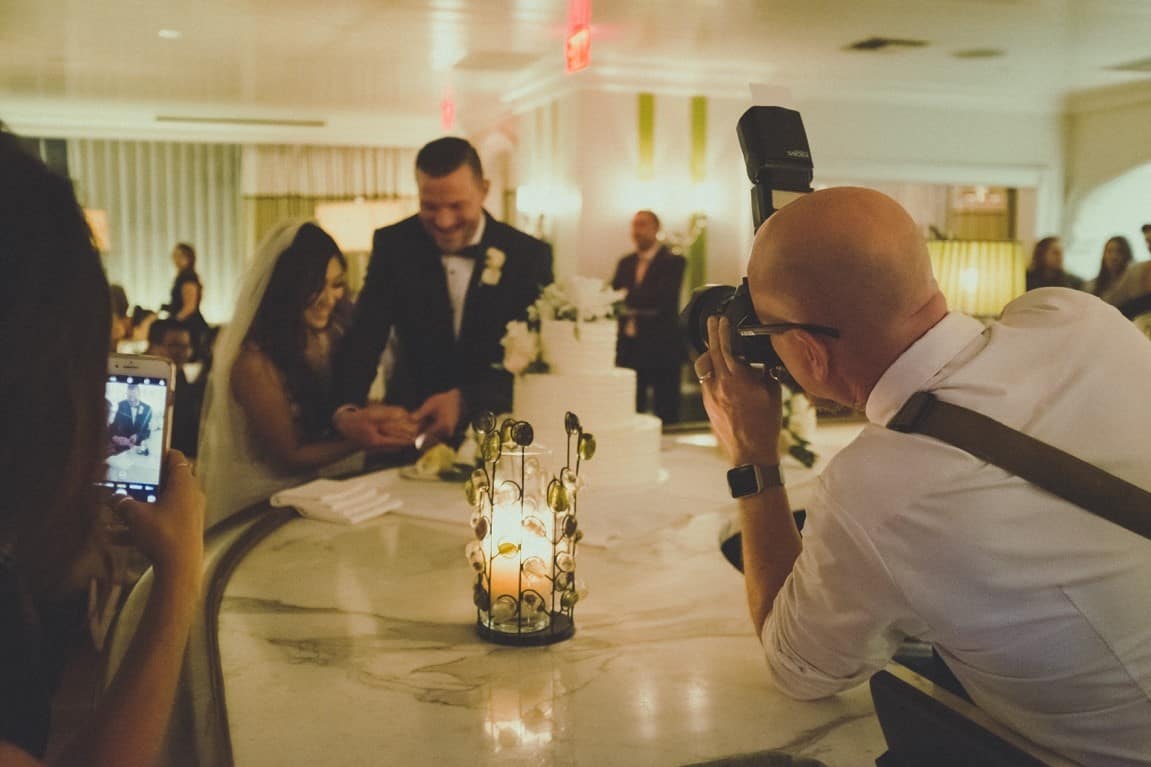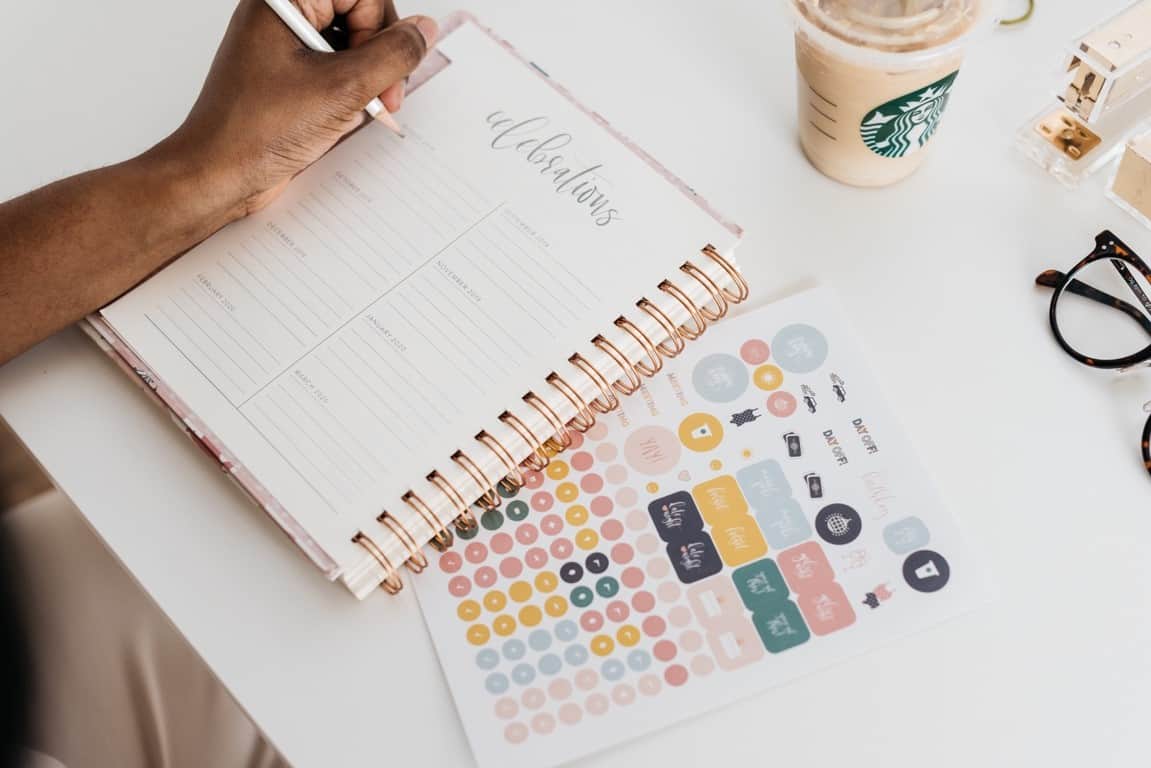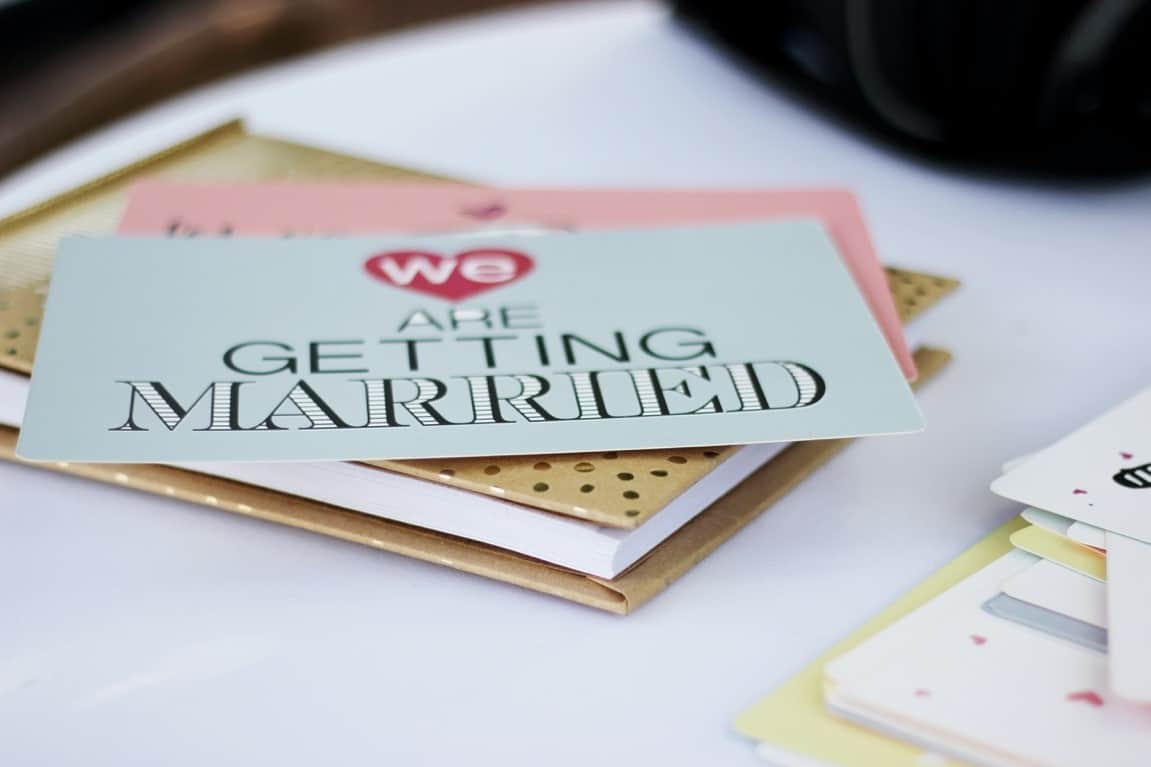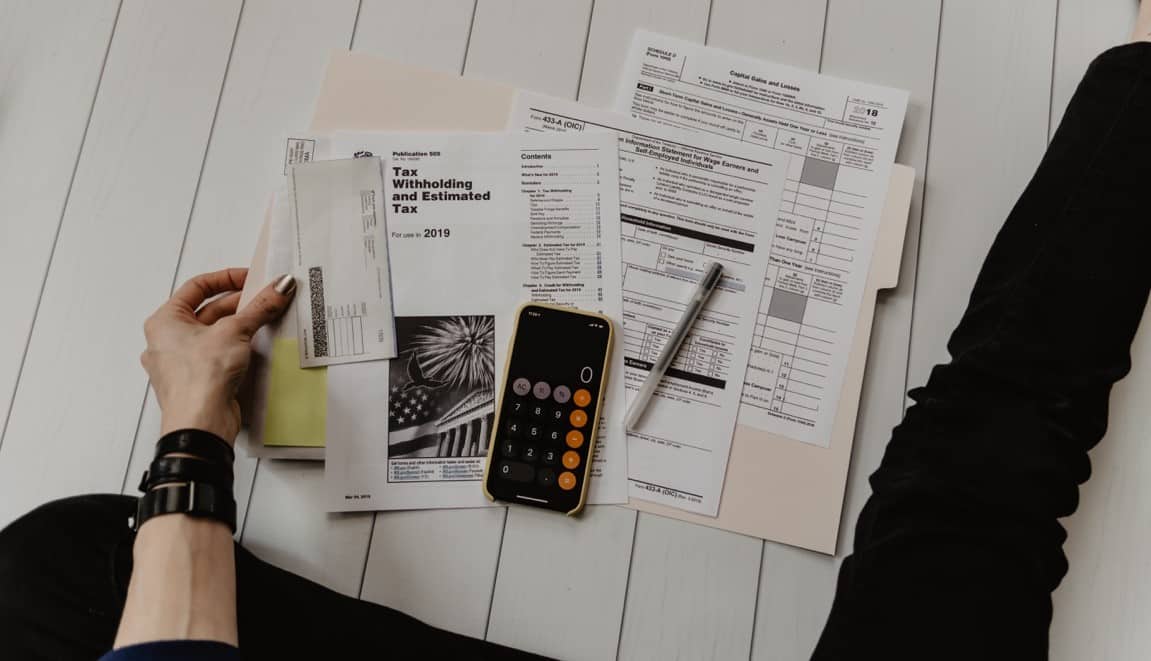Planning your wedding is a journey filled with excitement, anticipation, and admittedly, a fair share of stress. It’s a venture where dreams intertwine with budgets, and every detail matters. Before diving deep into the planning process, it’s crucial to establish a clear budget with your partner.
A $20,000 wedding budget is not only realistic but also manageable. The bulk of this budget will typically be allocated to the venue, catering, and decor. Other essential components include attire, entertainment, vendors, rings, and stationery, among other considerations.
Below is a table that provides a breakdown of how each segment of your wedding might be apportioned financially, accompanied by insights into the associated costs. We’ve also included handy tips to ensure you get the most value out of your budget.
$20,000 Wedding Budget Breakdown of Expenses
| Category | Approx. % of Budget | Cost |
| Food and drinks | 20% | $4,000 |
| Venue and rentals | 19% | $3,800 |
| Flowers and decorations | 15% | $3,000 |
| Photographer and videographer | 10% | $2,000 |
| Attire for the bride and groom | 10% | $2,000 |
| Entertainment | 6% | $1,200 |
| Wedding planner or coordinator | 5% | $1,000 |
| Cake and other desserts | 4% | $800 |
| Invitations and other wedding-related stationery | 2.5% | $500 |
| Wedding favors and additional amenities for guests | 2.5% | $500 |
| Wedding rings | 2% | $400 |
| Transportation | 2% | $400 |
| Officiant fee | 2% | $400 |
Besides the categories listed above, you may also want to keep in mind the following expenses: gifts for the bridal party, tips for the vendors, costs of having the rehearsal dinner, and honeymoon accommodation and itinerary. These expenses are usually not included in the main wedding budget — they may come directly out of the bride and groom’s pockets or are shouldered by a relative or friend.
Additionally, the application fee for a marriage license widely varies across states; you can get one for as low as $10 and as much as $115. Some jurisdictions may require premarital counseling or education courses, while some have standard fees set. Prices also differ if the couple does not live in the state they plan on getting married at, such as adventure elopers.
Keep in mind that these percentages and figures are just starting points; every couple’s budget will vary because of different circumstances and prioritizations. With that said, below is a more specific categorization of costs which you can use as a reference for your own budget.
Food, Drinks, Venue, Rentals, Flowers, and Decorations — 54% of the budget
The first three items on the list above make up more than half of the overall $20k wedding budget. Hiring a catering service also includes labor fees for the servers; some caterers include utensils in their rate, while some charge per person.
The price of renting a venue will depend on how many guests you plan on inviting and how long your event will take. Tables and chairs may already be included in the base price or they may have a separate cost. In some cases, venue guidelines restrict vendors that are not affiliated with them.
Similarly, decorations may already be taken care of by the venue. Otherwise, you may need the services of a wedding decorator. Additionally, you might also need to hire a wedding florist to assist the decorator with floral accents and centerpieces, as well as procuring the boutonnieres, bridal bouquet, and flowers for the flower girl.
Photographer and Videographer — 10% of the budget

Professional images and videos from your wedding are sentimental keepsakes of your special day. By hiring a photographer and videographer, you will not only be paying them for their time and skill but also the equipment and transportation they will use.
Furthermore, encourage your guests to take photos and record videos on their devices. Come up with an endearing and memorable wedding hashtag to which they can post their images and recordings.
Attire for the Bride and Groom — 10% of the budget
For those planning within a $20,000 wedding budget, renting suits and gowns can be a viable option. Yet, many couples still prefer purchasing their attire. This approach allows clothes to be tailored, ensuring the best and most flattering fit. Remember, alterations will also factor into your budget.
Moreover, while the idea of passing down a bridal dress might resonate with many, others might see the value in budgeting wisely, especially if you’re aiming for a wedding under that $20k wedding budget mark.
Also included in this budget segment are the hair and makeup costs for the couple. Accessories for both the bride and groom – from jewelry and cufflinks to traditional items – will also need to be accounted for.
Entertainment — 6% of the budget
No wedding is complete without music; from the processional to the reception, music adds to the ambiance and sentimentality of every part of the wedding. You may hire a DJ who can also double as an emcee for the reception or a live group of musicians. This budget allocation may also cover the rental of sound equipment if necessary.
Wedding planner or coordinator — 5% of the budget

Planners and coordinators offer invaluable assistance, especially for couples working with a $20k wedding budget. They will guide you through budgeting concerns, locating vendors and retailers, deciding major and minor details such as the theme and color scheme, and more.
Some wedding planners are also wedding coordinators, though there are differences between their skillsets and responsibilities. Coordinators ascertain that the plan is properly executed. Day-of wedding coordinators, in particular, oversee the event as it happens, making sure that everything goes according to plan.
Cake and other desserts — 4% of the budget
The wedding cake is often included in the budget for food and drinks. However, it might be worth creating a separate category for it, as its cost varies widely. This budget allocation also includes taste testing fees and delivery fees for your cake.
Wedding-related stationery, favors, and other amenities — 5% of the budget

This category includes invitations, post-wedding thank you notes, cards for wedding-themed games, decorations, props, gifts, and keepsakes. Utilizing materials with good quality is essential for aesthetically pleasing and durable results. Even if you’re on a strict $20k wedding budget, there’s room to include personal and unique elements to make your day special.
Wedding rings — 2% of the budget
A wedding ring is a physical representation of a couple’s eternal love and commitment. The price of wedding rings varies based on their design, composition, and several other factors; on average, wedding bands cost from $200 to $2,000. Depending on the retailer and the inclusions they provide, you may incur additional costs from resizing the ring or getting an inscription.
Transportation and officiant fee — 4% of the budget
These two expenses often fall under the “miscellaneous” category. Providing transportation for your guests, such as a bus or shuttle, is necessary for destination weddings to make sure that they arrive at the venue on time. Some couples may also want to rent a getaway car or a limousine.
Officiants will solemnize your marriage; they will lead the ceremony and make sure that the event flows smoothly and correctly. More importantly, they act as the legal witness to your marriage and sign the marriage license.
Tips for Wedding Planning on a Budget

Costs of Services Vary According to Location
The Cost of Living Index compares the average amount of money a population spends on housing, clothes, food, and other necessities. The index concluded that Mississippi, Kansas, Oklahoma, Alabama, and Arkansas have the lowest cost of living index. In contrast, Hawaii, California, New York, Oregon, and Massachusetts have the highest cost of living index in the United States.
Areas with a high cost of living are bound to charge higher prices for services and products. Thus, your budget of $20,000 may be more than enough in some cities while being not enough in others.
Start Saving Immediately After the Engagement
A few days after your partner proposes, you should have a conversation about starting to save money for your wedding. At this point, you already have an idea or an estimate of when you want your wedding to take place.
Most, if not all, couples take a portion of their monthly wage to put into their wedding budget. For instance, if you and your partner set your budget to $20,000 and give yourself 12 months to save up, that means you will set aside approximately $1,700 per month. If both of you are currently employed, you can each contribute around $850 per month.
In general, the equation to determine how much you should save per month is:
(desired budget) ÷ (number of months to prepare) = monthly savings*
*Divide the quotient by two if you and your partner are both able to contribute.
Corollary to this, you may also start cutting back on certain expenses. For example, unsubscribing from Netflix, cable, Spotify, Amazon Prime, and other services will help you reach your goal faster. You and your partner must decide which services must be kept and which can be let go of in the meantime.
Moreover, be more mindful about your spending habits; some expenses might be purely habitual or unnecessary. Small purchases can quickly add up. Keep in mind that you will not be giving these up forever but only until the wedding planning and preparations are complete.
Know Your Priorities

From the list of expenses above, discuss with your partner what you want to spend more or less on. You may find that the budget for flowers and entertainment is too excessive, or that you want a ring that is more expensive than what is written on the table. Similarly, listen to your partner when they share how they want to personalize the budget. Reach a consensus or a compromise that makes both of you content.
By cutting back on certain categories, you can relocate those funds to an aspect of your wedding that you want to be more special.
Dedicate a Savings Account Specifically for Wedding Funds
Dedicating a savings account for major life events, such as weddings, retirement plans, and travels is always a great idea. For one, your progress toward your goal will be easier to monitor. It will also fuel the feeling of fulfillment and excitement.
Carefully Deliberate Over Your Guest List
The larger your guest list, the higher your overall expenses; most venues and vendors charge per head. The number of chairs, tables, utensils, and other items you need to rent is directly proportional to how many people will attend your wedding.
Consider limiting the number of guests to be invited by politely indicating this in your invitation cards or RSVPs.
Moreover, decide if you want children to be present at your ceremony or reception. Some caterers have different rates when it comes to kids. Many couples opt for a kids-free reception, though this might be a pricier option given that you may need to hire a creche service.
Figure Out Who Will Pay for What
Once you have your list of must-haves and inclusions, it is best to determine which of you will be paying for which aspects. Itemizing your individual financial responsibilities ensures that nothing will be missed; it will also give you and your partner peace of mind that everything is taken care of.
Although it might be a difficult or awkward conversation, you can reach out to your parents and other close friends and relatives. Ask them if they would be willing to chip in for some of the expenses. They are more than likely to be happy to help.
If you have friends who are experienced in the field (e.g., baker, photographer, florist, etc.), they may even offer you their services for a discounted price. However, if they do not extend an offer, do not force or guilt-trip them into doing it.
Track Every Expense

Make a spreadsheet containing every aspect of your wedding and its corresponding budget allocation. As you go along the planning process, input your expenses into their respective category. Doing this will make it easier to stay within your budget, as you are aware of how much you have already spent.
In the same vein, set aside a folder where you will keep receipts, contracts, and other pertinent paperwork. You may need these documents for one reason or another. Similarly, create a folder in your email and messages specifically for wedding-related communications. Staying organized during a monumental task such as planning a wedding will make the whole affair more manageable.
Be Meticulous and Observant
When hiring people such as wedding planners, decorators, florists, photographers, and videographers, look through their portfolios. They must be able to accommodate the style you are going for. Moreover, look for online reviews about their services; if most or all of their past clients were satisfied, you can rest assured that the vendors are trustworthy.
Read through contracts and paperwork. Ask your vendors every question you have; inquire about overtime fees, service fees, discounts, and so on. It is better to be prepared with all of this information, rather than getting blindsided when your event lasts longer than expected.
Set aside a budget for probabilities like running overtime, as well as for tips and gratuities. Keep in mind that small amounts of money will add up quickly if you do not keep track of it.
Ask for Recommendations
More often than not, many of your vendors will come from your experiences at other’s weddings. If you find a service you particularly like, ask that couple for the vendor’s contact information.
Likewise, if you have already hired a planner, they may have a network of affiliate vendors at their disposal. Availing of their service may get you a discount. Regardless, if you trust your planner, then you can trust their recommendations, too.
Set Aside an Emergency Budget

There are contingencies in every event, no matter how rigorously it was planned: you might run out of juice or beer to serve; the ceremony might run overtime, incurring a fee from the musicians; a kid might tip over a glass and break it. Although invoices from your vendors may already cover possible broken equipment, it is best to have some cash on hand so you can address issues that pop up.
In general, having a budget overage is a safety net. Last-minute changes may pop up, such as weather-related expenses and touch-ups to the decoration.
Save Money Where You Can
Seeing as food and beverage will probably cost you the most, it is worth looking into ways you can save money. Potlucks, bring your own booze, buffet-style dinner, do-it-yourself food stations, and food trucks are some money-saving alternatives you can explore. In the same vein, you can opt for a dessert bar or cupcakes instead of having a wedding cake.
Instead of renting all of the decors to be used, you can bring some of your own or your friends’ and relatives’. Additionally, some items might be cheaper if you buy them yourself online or secondhand.
Talk to your partner about what you two are willing to skip on or save on. Besides the importance of being on the same page, you might get insights and ideas from each other that you never would have thought of.
It is also worth reiterating that you and your partner know your priorities — that is, your must-haves and must-not-haves. These will guide you as you make decisions about your budget.
Find Inspiration from Other Couples
Besides the breakdown of costs above, there are plenty of guides and past weddings published online that you can use to help you make your own budget. Examples include budget breakdowns from Hoover Web Design, Charged Up Travels, Maggie Sottero Designs, Modern West Photo, and A Practical Wedding.
Make Sure Your Guests Will Be Comfortable
Regardless of what modifications you will make, ensure that the experience will still be enjoyable and memorable for everyone involved. If you are holding an outdoor wedding, provide tents so they have shade; rent enough tables and chairs so that every guest will have enough elbow and legroom.
Final Thoughts
With the right planning and budgeting, a budget of $20,000 for your wedding will result in a spectacular day. By knowing you and your partner’s priorities, having a reliable support system, and being diligent and creative, your dream wedding will be attainable.
If you think this budget could be a tad too small for what you’re looking for, read our guide on how to have a wedding under $30,000 – here.